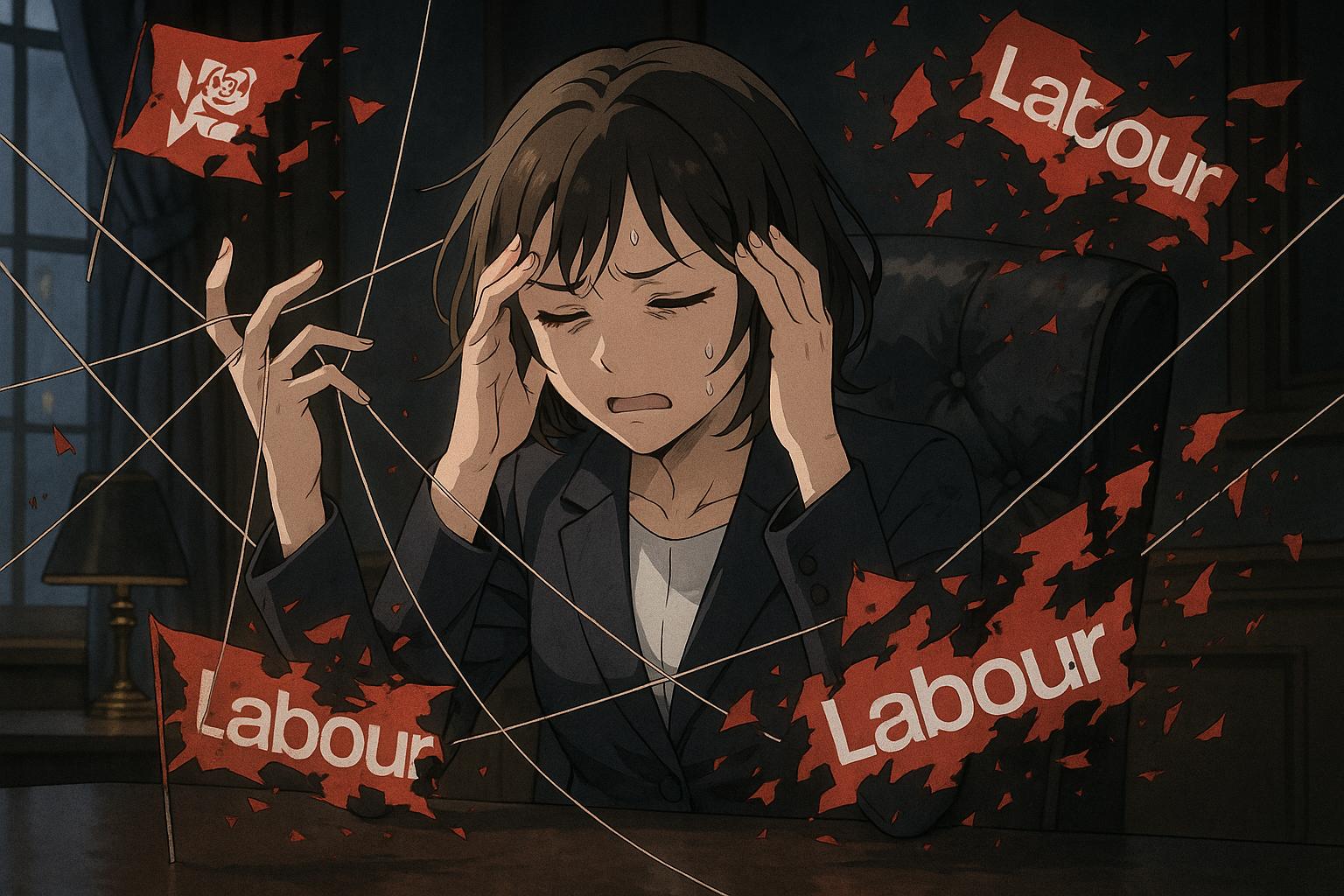Rachel Reeves finds herself in a critical and potentially disastrous position within the Labour Party, embodying the role of Chancellor while remaining subject to external pressures and factional strife. Described increasingly as a “puppet chancellor,” her authority appears to wither in the wake of significant policy reversals. Recent decisions, particularly the decision to reinstate cuts to winter fuel payments aimed at pensioners, have raised alarms about her grasp over fiscal matters, with even her most assertive attempts at demonstrating responsibility being swiftly undone due to pressure from party leadership.
Prime Minister Keir Starmer’s hasty retreat from Reeves’ earlier policies underscores a grave sensitivity to voter sentiment, particularly in light of looming by-elections that could decimate Labour's standing. This trend is symptomatic of a broader crisis within the party, where 43% of voters reportedly view Reeves unfavorably, casting doubt on her credibility. The party's internal discord over potential austerity measures, especially cuts to disability benefits, echoes a troubling return to the kind of fiscal strategies that voters have decisively rejected.
Angela Rayner, the Deputy Prime Minister, has openly undermined Reeves, advocating for immediate funding for essential services amid chaotic negotiations that insiders describe as a “bunfight.” This conflict reflects a stark divide in priorities where Rayner seeks urgent investments rather than Reeves’ timid strategies of long-term savings driven by fiscal constraints. As debates intensify over departmental spending, the disarray within Labour highlights a troubling lack of unity and clarity of vision.
On a broader scale, the economic challenges facing the UK are intensifying. A report indicating a 0.6% decline in productivity in 2024—falling beneath pre-pandemic levels—underscores the government's ineffectiveness in fostering sustainable growth. Reeves’ ability to navigate these tumultuous waters while confronting fractious party dynamics will likely dictate Labour’s electoral future. As analysts warn of potential downward revisions by the Office for Budget Responsibility regarding productivity growth, the government may find its fiscal options severely hamstrung, compounding Reeves’ struggles.
Moreover, Reeves has proposed a shift in investment strategy, urging pension funds to focus their efforts on UK-based projects. While this initiative aims to enhance returns for savers and redirect capital to domestic priorities, it raises pertinent questions about the balance between state intervention in personal financial decisions and individual freedom—a debate that has grown increasingly contentious in recent political discourse.
As Labour grapples with internal discord and fluctuating public sentiment, Reeves remains caught in a precarious balancing act, striving to project authority while placating both party elites and the electorate. The path forward not only demands fiscal responsibility but also an urgent engagement with voters’ deepening concerns about welfare and economic stability, as the fabric of public trust in Labour unravels.
Source: Noah Wire Services
